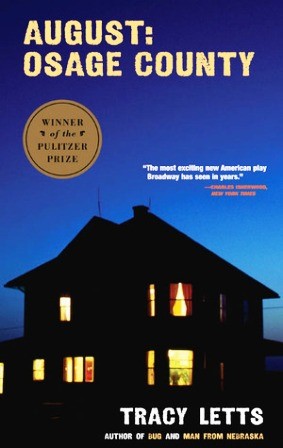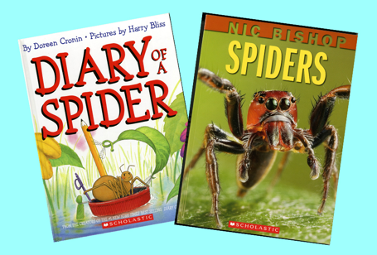Now he lives in the islands, fishes the pilin’s
And drinks his green label each day
Writing his memoirs, losin’ his hearin’
But he don’t care what most people sayThrough eighty-six years of perpetual motion
If he likes you he’ll smile and he’ll say
Jimmy, some of it’s magic, some of it’s tragic
But I had a good life all the way
The last verse of Jimmy Buffett’s He Went to Paris
I love the lyric. It captures my feeling about the “magic and tragic” that is the essence of our lives.
In January I wrote an essay called Who Will I Be in 10 Years after hearing an NPR feature with the same title. I can’t answer the question now. Maybe I won’t be able to answer it at all. I’m in what climbers call “the death zone,” the upper reaches of the mountain, above 8000 meters, where thin air, low temperatures, high winds, unpredictable weather and ice present a matrix of threats to life. It isn’t ice or thin air that creates the death zone for me; it’s stealthy predators like cancer, heart disease, Parkinson’s and stroke that challenge the longevity calculus. As well as I am at the moment, there is always the possibility that the predators will strike. They creep in to steal the future, but, like the climbers on Everest, we don’t focus on the risks. Instead, we continue toward the summit. We continue to plan, set goals, and drill on into the night.
 The trigger for these reflections was a performance of Tracy Lett’s play August: Osage County, the 2008 Tony Award winner about a family dealing with the death of its patriarch and all the tangled emotional family issues it brings into focus. It’s unique as modern theater but deals with the same complicated family drama brought to life in Eugene O’Neill’s Long Day’s Journey Into Night. Mercifully, it only takes 3 hours and 40 minutes to deconstruct the Weston family in Osage County versus the almost endless undoing of the Tyrone’s in the O’Neill play.
The trigger for these reflections was a performance of Tracy Lett’s play August: Osage County, the 2008 Tony Award winner about a family dealing with the death of its patriarch and all the tangled emotional family issues it brings into focus. It’s unique as modern theater but deals with the same complicated family drama brought to life in Eugene O’Neill’s Long Day’s Journey Into Night. Mercifully, it only takes 3 hours and 40 minutes to deconstruct the Weston family in Osage County versus the almost endless undoing of the Tyrone’s in the O’Neill play.
As Tolstoy said in the famous opening line of Anna Karenina “Happy families are all alike, every unhappy family is unhappy in its own way.” The Weston and Tyrone families in Osage County and Long Day’s Journey are riddled with alcoholism, drug addiction, envy, and incest – a litany of modern family problems. But these problems are symptoms of the underlying existential angst and stress created by their tangled and knotted family relationships. What is it about these plays that compels our attention aside from the brilliant portrayal of their flawed characters? I think it’s that they lead us back to our own family dynamics. My criterion for evaluating a film or theater piece is the durability of the conversation that follows. In the case of these plays, extreme as the situations are, the conversations and reflections are driven by comparisons to our own families and the discomfort we find in the common elements.
In Asia, where I have spent most of the last four years, the family is still the most important social unit. Gish Jen, the Chinese-American writer, in her book Tiger Writing: Art, Culture and the Interdependent Self asserts that Euro-American culture with its focus on individualism is categorically different from Asia’s emphasis on the collective interdependent self. The family is the context for community and growth. Elders are venerated and holidays dictate a return to the family home which is almost always geographically close. In the West, we encourage our children to be independent and to question authority – and we scatter.
Divorce, geography, and lifestyle are all challenges to family harmony and communication in the West. My immediate family (children and grandchildren) has spread itself between Seattle, Saigon, Sun Valley, Salt Lake City, Bellingham and Brisbane, Australia. None of my children live close to me and I have not shared a holiday with any of them in more than 5 years. We live separate lives with separate networks of friends.
I have always admired writers that mine their own experience but I’m also mindful of the pain they cause when their friends and family see themselves in their work. My friends, Dick and Kit, have been treated harshly in fiction written by their son, Dan, and James Salter used his neighbors, the Rosenthal’s, as models for an unflattering portrait of a disintegrating marriage in his novel Light Years. My wife is uncomfortable when I even nibble at the edges of writing something personal. I want to be honest and not hold back, but I feel protective. Still, there is an open wound and ongoing pain with two family members. That’s where the Osage County, Long Day’s Journey stuff comes in; when I look at my family I see reflections of the same discord I see in those plays.
My family doesn’t have alcohol, drug, incest or domestic abuse issues like the families in August: Osage County or Long Day’s Journey Into Night but like many families we have sticky issues that emanate from the Euro-American emphasis on self. I take responsibility for some the distance between us. I was an only child and always self-absorbed. I still am. I could do better at reaching out to my children – but so could they. I hear from my oldest on a regular basis but almost nothing from the other two. I hate the telephone and use it mostly for housekeeping tasks like making appointments or doing things I can’t do by email. I like the written word so I communicate by email, even though I know it is easily misinterpreted. I rarely see my children or grandchildren and our visits are getting rarer – once a year maybe. They began to separate, individuate and differentiate themselves as teenagers when they went away to boarding school and then to college. My then-wife and I encouraged it. They were all different then and have grown to be independent and successful in their different ways now.I’m proud of them.The two that have their own children are good parents and all three are good friends to each other and to their friends but it’s not enough to make us into the Brady Bunch or the Beaver Cleavers. Neither are we the Westons or the Tyrones.
All families are dysfunctional to some degree. I thought mine was different but now I realize this was self-serving and delusional. My daughter said it first; our choices and priorities are different. Is there anything I can do to change it? Yes, but I want it to be mutual. I want them to want it too. I don’t think of myself as needy but I guess I would like a little more Asian interdependence. At this point we all have reasonably normal, successful lives within our own spheres. Would I like to feel closer to my children? The answer is yes. Would I l ike to have healthier more frequent communication with them? Yes. Would they answer the questions the same way? I don’t know. Interesting isn’t it? I really don’t know them well, nor they me, at this stage in our lives. In the abstract we all want “better” relationships with better communication, but families are complicated and the divorce, distance, and lifestyle issues are always at play.
It is what it is. For now, I think Jimmy Buffett says it best; “
Some of it’s magic. Some of it’s tragic. But I’ve had a good life all the way.”
































Beautifully written and courageous, since I assume those dear (but not near) will probably be reading it. I hope so anyway, because it’s a wonderful summing up of the things many of us would like to say, but lack the will or